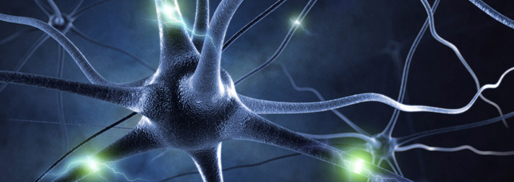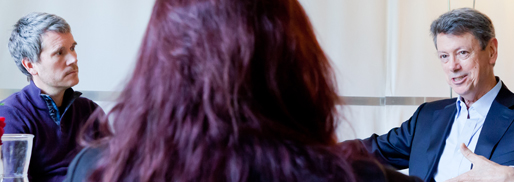in Positive Neuroplasticity
Online Training from Rick Hanson, Ph.D.
The Positive Neuroplasticity Training (PNT) teaches you how to have beneficial experiences more often, prolong and enrich them, and heighten their absorption into your brain – so you can have more happiness, self-worth, resilience, motivation, and fulfilling relationships.
The Professional Course (PC) is very hands-on and practical, showing you how to apply these powerful ideas and methods in your work with others. It’s designed for therapists, coaches, educators, managers, human resources professionals, healthcare providers, mindfulness trainers, and movement teachers.
In this experiential training, New York Times bestselling author Rick Hanson, Ph.D. will teach you:

How to explain the science and teach the methods of Positive Neuroplasticity

How to help others have and install beneficial experiences

Practical tools to change habits and build motivation
COURSE OUTLINE:
COURSE OUTLINE:
Part 1: Foundational Knowledge of Positive Neuroplasticity
- Understanding positive neuroplasticity
- Assessing skills in explaining positive neuroplasticity
- Recognizing psychological resources in oneself and others
Part 2: The Benefits of Growing Inner Resources
- Replacing feelings of deficit and disturbance with an underlying sense of fullness and balance
- Understanding and explaining the value of learning how to learn
- Overview of using the HEAL process with others
Part 1: Foundational Knowledge of Positive Neuroplasticity
- Understanding positive neuroplasticity
- Assessing skills in explaining positive neuroplasticity
- Recognizing psychological resources in oneself and others
Part 2: The Benefits of Growing Inner Resources
- Replacing feelings of deficit and disturbance with an underlying sense of fullness and balance
- Understanding and explaining the value of learning how to learn
- Overview of using the HEAL process with others
Part 3: Helping Others to Have Beneficial Experiences
- Teaching skills for noticing beneficial experiences that people are already having
- Thirteen ways to create beneficial experiences
- Managing blocks to the HEAL process
Part 4: Helping Others to Install Beneficial Experiences
- Guiding others in the “Enrich” step of the HEAL process
- Guiding others in the “Absorb” step of the HEAL process
- Guiding others to identify and develop psychological resources matched to specific challenges or issues
Part 3: Helping Others to Have Beneficial Experiences
- Teaching skills for noticing beneficial experiences that people are already having
- Thirteen ways to create beneficial experiences
- Managing blocks to the HEAL process
Part 4: Helping Others to Install Beneficial Experiences
- Guiding others in the “Enrich” step of the HEAL process
- Guiding others in the “Absorb” step of the HEAL process
- Guiding others to identify and develop psychological resources matched to specific challenges or issues
Part 5: Using Positive Material to Address Negative Material
- The neuropsychological basis of associating positive and negative material
- General skills for helping others link positive and negative material
- Linking particular positive material to psychological wounds and deficits
Part 6: Special Applications of the HEAL Process
- Using HEAL in counseling and coaching, including with children and couples
- Using HEAL for anxiety, depressed mood, addiction, and trauma
- Placing the deliberate internalization of psychological resources in a societal context
Part 5: Using Positive Material to Address Negative Material
- The neuropsychological basis of associating positive and negative material
- General skills for helping others link positive and negative material
- Linking particular positive material to psychological wounds and deficits
Part 6: Special Applications of the HEAL Process
- Using HEAL in counseling and coaching, including with children and couples
- Using HEAL for anxiety, depressed mood, addiction, and trauma
- Placing the deliberate internalization of psychological resources in a societal context
Need Continuing Education Credits?
Mental health professionals can receive up to 19 CE credits for the Positive Neuroplasticity Training and Professional Course.
$698
The Professional Course plus the Positive Neuroplasticity Training (PNT)
This is a practical, hands-on training that applies positive neuroplasticity to your work with others – for faster and more lasting learning, motivation, healing, and growth. For therapists, coaches, educators, managers, trainers, and healthcare providers. You’ll receive:
- The PNT and everything that comes with it
- The Professional Course (PC) with Dr. Hanson teaching how to:
– Explain positive neuroplasticity and its uses
– Help people have the experiences they need and long for
– Identify and grow key mental resources
– Heal anxiety, depression, trauma, and shame - CE credits available (for an additional fee)
- Certificate of Participation
- Rick’s Powerpoint slide sets for both the PNT and the PC for your own use
- 30-day money-back guarantee
Have a group of 2 or more? There are buddy + group discounts available.
Frequently Asked Questions
Do I need to take the Positive Neuroplasticity Training before taking the Professional Course in Positive Neuroplasticity?
- The Positive Neuroplasticity Training (PNT) and the Professional Course (PC) are distinct programs, and many people take both of them. The PNT is the foundation of the PC and the prerequisite for it. If you enroll in the PC, we presume that you have already taken the PNT and are familiar with its ideas and methods. Since the PNT is conveniently available online, a person should usually be able to do it online or in-person before taking the PC.
- Occasionally someone may have an opportunity to take the PC in-person but not have time to take the PNT beforehand. In this case we will waive the PNT prerequisite requirement IF the person already has a deep understanding of positive neuroplasticity through completing the Foundations of Well-Being, reading Hardwiring Happiness carefully, or similar background.
- If you have any questions about this, please contact us
Can I get Continuing Education Credits?
If you are a mental health professional, you may be able to receive Continuing Education Hours if you attend and in-person Positive Neuroplasticity Training and/or Professional Course, or participate in an online version of it.
The Positive Neuroplasticity Training is generally eligible for 10-18 CE credits.
The Professional Course is generally eligible for 9-18 CE credits.
We suggest checking with your state licensing board to confirm they will accept credits from APA approved sponsors before taking the program.
What if I need to cancel after I've registered?
No worries, just send us an email at pnt@rickhanson.net and we’ll process your cancellation and refund within 24 business hours.
Will there be audio or video downloads available?
Yes. All of the videos will be available to download as mp4 files. There will also be mp3 audio files available to download.
How does the PNT differ from Rick's Foundations of Well-Being program?
The Positive Neuroplasticity Training (PNT) is a deep immersion in the material in the Learning pillar of the Foundations of Well-Being (FWB) program – i.e., the HEAL methods of positive neuroplasticity, turning ordinary experiences into extraordinary inner strengths, and using these methods to build up inner resources for any issues related to our three core needs of safety, satisfaction, and connection – and then the Foundations of Well-Being program applies these methods to growing the specific strengths in the other 11 pillars of well-being.
Putting it a little differently, the Positive Neuroplasticity Training is an 18 hour immersion in a single subject – positive neuroplasticity – that is covered in 4 hours in the Foundations program, while the Foundations of Well-Being program altogether is about 50 hours of core material plus lots of other goodies compared to 18 hours of the Positive Neuroplasticity Training.
Can someone be too depressed, anxious, or traumatized for this course to be helpful?
Dr. Hanson really believes that no one is too wounded to improve. It’s really just a matter of finding the practices that work for you. The Positive Neuroplasticity Training certainly has the potential to be of value to anyone – regardless of their history – and if you find that it is not beneficial, we of course would be happy to give you a full refund.
To Contact Us